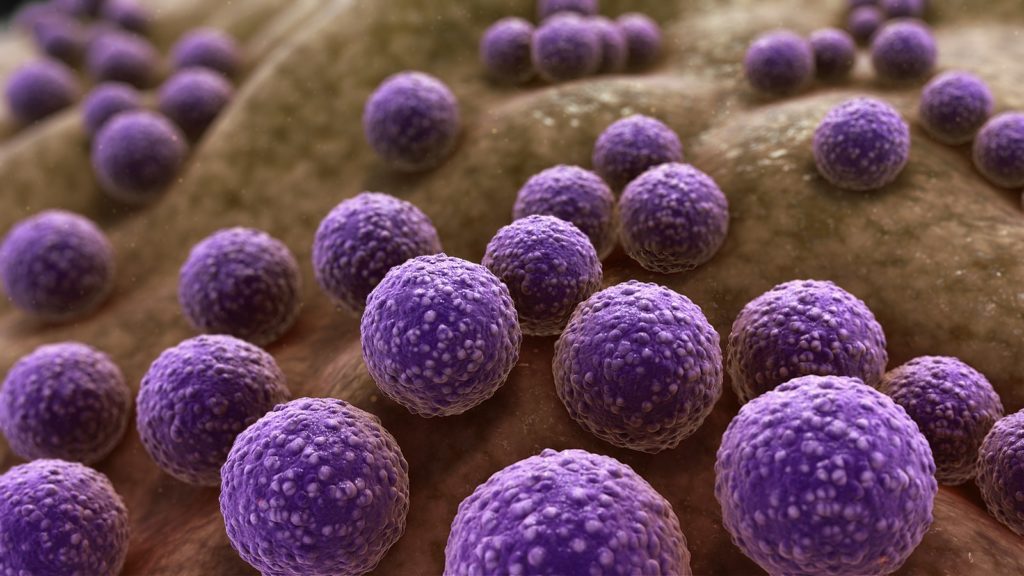Medicine has made many advances in the last hundred years, and probably one of the biggest ones is the advent of vaccinations. Dr Joe Kosterich talks about vaccination, including what it is, how it works, why it’s important, how safe it is, what’s available, how it’s given and when to get it.
 Sometimes you’ve got to pause and think, and remember that we’re quite fortunate in this day and age that we don’t see diseases like tetanus, diphtheria, virtually any polio, measles, and a number of other diseases that used to be quite common (I should point out that in some parts of the world, they still remain common today). The reason we don’t see some of these diseases in the Western world is essentially because of the advent of vaccinations through the twentieth century. The concept of vaccination is essentially getting the body’s own immune system to make antibodies against a disease that you haven’t actually got or contracted.
Sometimes you’ve got to pause and think, and remember that we’re quite fortunate in this day and age that we don’t see diseases like tetanus, diphtheria, virtually any polio, measles, and a number of other diseases that used to be quite common (I should point out that in some parts of the world, they still remain common today). The reason we don’t see some of these diseases in the Western world is essentially because of the advent of vaccinations through the twentieth century. The concept of vaccination is essentially getting the body’s own immune system to make antibodies against a disease that you haven’t actually got or contracted.
We all know that with most illnesses, if we’ve had something once, we won’t get it again. Even with cold and flu type viruses, you may get another cold, but you don’t get the same one. The reason is that the body produces antibodies to the virus – or indeed the bacteria – that we catch. Once we’ve got antibodies in our system, then the body recognises that same virus or bacteria if we catch it again and it acts much more quickly, so we don’t get sick. With diseases like tetanus and diphtheria, these are fatal illnesses, so we don’t necessarily get a second chance.
When we are vaccinating, what we are putting into the body is a small extract – or, if you like, emblem – of the virus or bacteria that the body will recognise. But we’re doing it without actually introducing the infection. The body recognises that there’s something foreign, and it reacts and responds by producing antibodies in exactly the same way as if you actually had the disease. So you can say we’re tricking the body into developing an immune response without actually having to go through the illness itself. With illnesses that can be fatal, that’s a fairly useful and good idea. And what we’ve seen over the last 50–60 years is significant drops in some of the diseases that we’ve mentioned.
It’s become so mainstream that we forget what things were like, and this can lead to people being a little bit blasé or forgetting that the reason we are where we are is because of what we’ve done. So because we don’t see many cases of polio or measles, we tend to think it doesn’t matter because these diseases have disappeared. But in some parts of the world that’s not the case, and the reason it remains rare in most Western countries is because of ongoing vaccinations.
So here is the bottom line: with children, depending where you live, there will be a schedule for childhood immunisation. It includes a number of different diseases: things like tetanus, diphtheria, whooping cough, polio, generally a form of meningitis, hepatitis B in this country, and also rotavirus. There are a couple of others, and depending where you live, the schedule may differ.
 These are administered generally by a needle injection, and they are done at different points in time. In Australia, it’s generally 2, 4, 6, 12 and 18 months. In the UK, it’s a little bit different, and there are slight variations on the theme in different parts of the world, but the basic concept remains the same. The whole process is to enable a baby or small child to get some immunity to diseases rather than having to contract these diseases.
These are administered generally by a needle injection, and they are done at different points in time. In Australia, it’s generally 2, 4, 6, 12 and 18 months. In the UK, it’s a little bit different, and there are slight variations on the theme in different parts of the world, but the basic concept remains the same. The whole process is to enable a baby or small child to get some immunity to diseases rather than having to contract these diseases.
There are still some myths about vaccination. Let’s be up-front: some people are allergic to anything. Some people will react to penicillin, some people react to strawberries. There will be rare instances of reactions, and for some of those children, other arrangements may need to be made. But for everyone else – and this is the vast majority – yes, it’s a little bit sore. Babies will cry a little bit – it’s a needle point, it’s not that much fun – but it passes very quickly. Maybe they’re a little bit grizzly the next day; most don’t even get that. And then they’re okay.
There was a fairly celebrated instance of claims about connections between autism and the measles mumps rubella vaccine. Despite the amount of publicity generated, this has now been totally refuted. There are still pockets out there where conspiracy theory applies and people haven’t accepted that, but it is clearly refuted.
The other really important thing is to have a chat with your doctor or nurse about the vaccinations and about the issues. If you have questions, ask them. If you have worries, ask about them. It’s almost certain that those concerns will be able to be addressed, and you’ll have some more facts and knowledge about it, and then you can make a decision. So don’t sit there wondering and worrying; just ask the questions and get the information. Once you have and you’ve got all the facts, it really will be a lot more straightforward than some people may have led you to believe.
To sum up, vaccination is really about getting the body to become immune to illnesses that we don’t want to get, and a lot of these illnesses are fatal. There is a schedule in pretty much all countries for childhood immunisation, and this is about allowing a baby or infant to develop immunity and not be prone to potentially lethal illnesses. The success of vaccination has meant that we don’t see these illnesses, and it allows us to forget why the whole thing was done in the first place. If you do have any issues or concerns, raise them with your doctor or the nurse who’s doing the vaccine. It is fairly straightforward; it is also quite important.
More information
 |
For more information on immunisation, including the childhood immunisation scedule, types of vaccines, preconception screening, as well as some useful videos, see Immunisation. |
All content and media on the HealthEngine Blog is created and published online for informational purposes only. It is not intended to be a substitute for professional medical advice and should not be relied on as health or personal advice. Always seek the guidance of your doctor or other qualified health professional with any questions you may have regarding your health or a medical condition. Never disregard the advice of a medical professional, or delay in seeking it because of something you have read on this Website. If you think you may have a medical emergency, call your doctor, go to the nearest hospital emergency department, or call the emergency services immediately.







